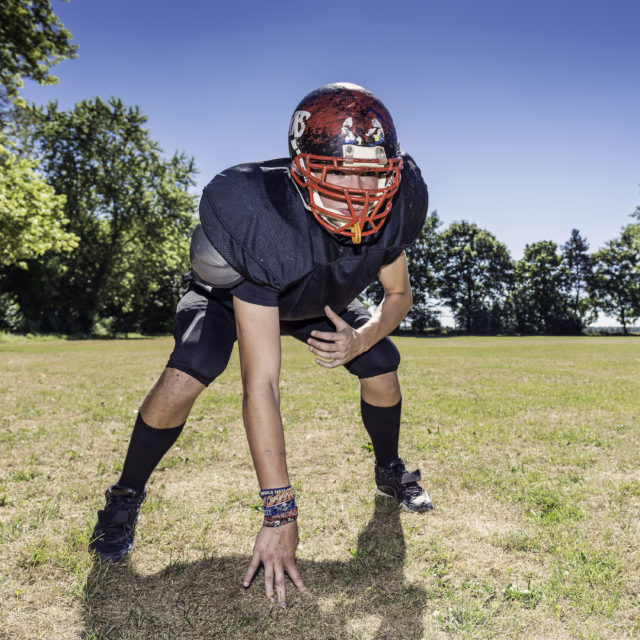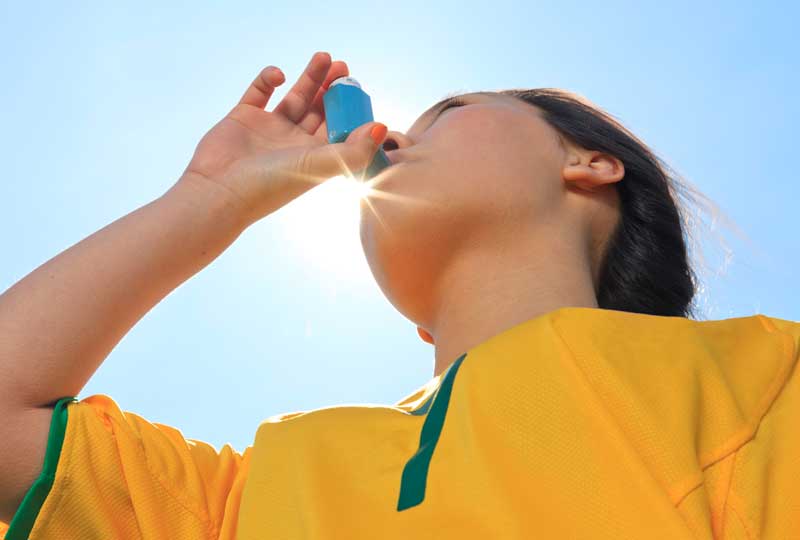The short answer is yes, say asthma experts. It’s all about management.
David Beckham. Jackie Joyner-Kersee. Greg Louganis. These athletes have more in common than excelling at their sports (soccer, track and diving, respectively). They all have asthma.
Many think that being diagnosed with asthma means an end to sports. Luckily, said Dr. Paul Moore, Director of Pediatric Allergy, Immunology and Pulmonary Medicine at Monroe Carell Jr. Children’s Hospital at Vanderbilt, that’s not the case.
“Youth who have asthma are certainly able to play sports,” said Moore. “It’s all about management. As youth better understand their asthma, recognize triggers, learn how to prevent exacerbations, and are consistent with the use of medications, asthma should improve.”
Managing asthma and sports
Moore describes the fundamentals of managing asthma and sports as the following:
- Understanding your asthma and how to better control it.
- Identifying triggers to avoid.
- Identifying treatment strategies, which include medications for baseline control and for use in an emergency.
“There are some children where exercise itself is the only trigger for asthma,” said Moore, “and in these cases asthma can often be controlled with the use of a rescue inhaler. For children with underlying asthma, exercise can become an additional trigger. For instance, when I was coaching youth football, smoke from the grill blew over into our practice area, and one of the youth started having an asthma attack. Freshly cut grass prior to soccer or other outdoor sports can also be a trigger for children who are allergic to grass and pollen.”
Knowing what triggers your child’s asthma and understanding which treatments can help improve symptoms can help ensure that your child is able to play sports safely.
Warning signs to watch for
“Coughing and wheezing can be signs of an asthma flare,” Moore said. “Symptoms of shortness of breath and chest pain should be taken seriously. When symptomatic, the athlete should take a break, use their rescue inhaler (if indicated), and seek emergent care if they fail to improve.”
Supporting your youth athlete with asthma
“There are multiple ways in which parents can support their children with asthma,” Moore said. “They should discuss concerns with their pediatrician and see an asthma specialist if needed. They should make sure their children are adherent with their controller medications — which can be tough to remember to take daily — so devise strategies to help them remember.”
Moore added that talking with your children and providing reassurance is important: “Emotions can also be a trigger for asthma, and it’s very understandable that when a child becomes short of breath that panic can set in.”
Seeking help for asthma and sports
“The Youth Sports Health Center at Vanderbilt can help facilitate a referral to an appropriate specialist as needed,” Moore explained. “Providers in the pediatric allergy and pulmonary clinic can provide comprehensive evaluation of children with asthma or suspected asthma, including lung function measurement, allergy testing and exercise challenge. Occasionally children have other diagnoses and may need to see a specialist in pediatric cardiology or pediatric otolaryngology (ENT).”

Youth Sports Health Center
The Vanderbilt Youth Sports Health Center is a partnership between Vanderbilt Sports Medicine and Monroe Carell Jr. Children’s Hospital at Vanderbilt. The new center helps young athletes avoid or recover from injuries and illnesses so they can improve and compete at their best levels. To schedule an appointment, call 615-421-8900.

